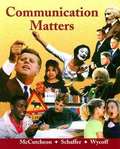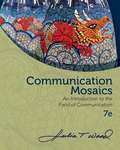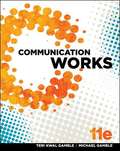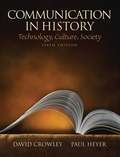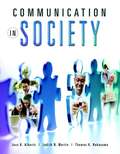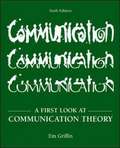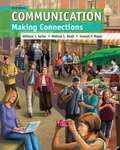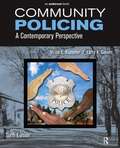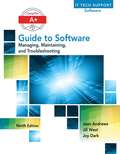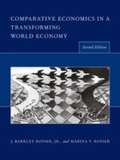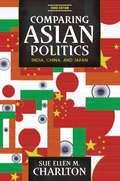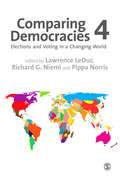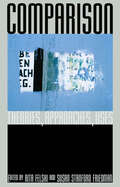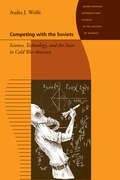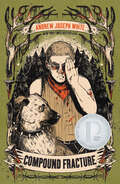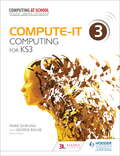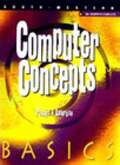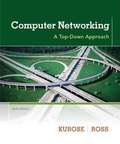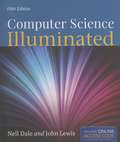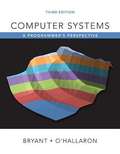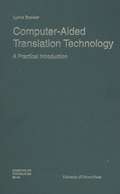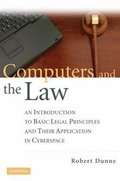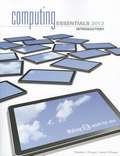- Table View
- List View
Communication Matters
by James Schaffer Randall Mccutcheon Joseph R. WycoffDescribes how to research, organize, write, and deliver different kinds of speeches and discusses related forms of communication such as debates, oral interpretation, and radio.
Communication Mosaics: An Introduction to the Field of Communication, Seventh Edition
by Julia T. WoodCOMMUNICATION MOSAICS: AN INTRODUCTION TO THE FIELD OF COMMUNICATION, Seventh Edition, combines the author's signature first-person narrative style and popular student commentaries with thoroughly up-to-date research, theories, and technological information to provide both an overview of the field and a practical guide you can immediately use to improve your personal, professional, and public communication skills. By beginning with introductions to the basic processes and skills central to all communication contexts and then moving on to how we apply these aspects of communication in specific contexts such as interpersonal and public speaking, the text shows you the importance of developing your communication skills and gives you the hands-on tools you need to become a more effective communicator.
Communication Theory and Concepts 7th
by Martha J. HaunThe first part of this book provides an examination of the nature of theory construction, the nature of the communication process, and reviews selected theories across a variety of contexts. In part II are examples of application papers written by students. Each semester several hundred undergraduate write papers much like these. The assignment changes a bit from time to time. These were selected because they also demonstrate humor and creativity. In a matter of weeks, you too, can similarly expand your vocabulary and understanding of the communication world around you. Part III has selected power point slides for further application and concept review. Welcome to a study that can reveal dynamic new perspectives!
Communication Works
by Michael Gamble Teri Kwai GambleCommunication Works 11e applies a new critical thinking framework to its core content, now in a more user-friendly 15-chapter organization. We have retained and revised the text's practical approach to communication, with a focus on the ways in which diversity, technology, social media, and ethical concerns both enrich and complicate our world. Students will learn what role communication plays in their lives today, in the classroom, and tomorrow, in the working world.
Communication in History: Technology, Culture, Society (Sixth Edition)
by David Crowley Paul HeyerUpdated in a new 6th edition, Communication in History reveals how media has been influential in both maintaining social order and as powerful agents of change. With revised new readings, this anthology continues to be, as one reviewer wrote, "the only book in the sea of History of Mass Communication books that introduces readers to a more expansive, intellectually enlivening study of the relationship between human history and communication history". From print to the Internet, this book encompasses a wide-range of topics, that introduces readers to a more expansive, intellectually enlivening study of the relationship between human history and communication history.
Communication in Society
by Judith N. Martin Thomas K. Nakayama Jess K. AlbertsCommunication in Society explores communication in a larger, social context. Alberts, Martin and Nakayama developed a skills-based framework, to give the reader what they need to communicate effectively as individuals and as members of society. This book helps students learn to clearly understand and take responsibility for the complexities of their individual communication choices.
Communication: A First Look At Communication Theory (6th Edition)
by Miriam GriffinThe most widely-used textbook for the communication theory course, "A First Look at Communication Theory" analyzes the major communication theories at a level that is appropriate for both lower- and upper- level courses. The 34 theories represented in the text reflect a mix of foundational and recent scholarship, and strike a balance of scientific and interpretive approaches
Communication: Making Connections
by William J. Seiler Melissa L. Beall Joseph MazerEmphasizes the connections between communication and our daily lives Communication: Making Connections, a top-selling hybrid text, is unique in its integrated "Making Connections" theme and emphasis on technology. While introducing the basic principles of public speaking, interpersonal communication and group communication, the text stresses communication competence by constantly applying a solid theoretical foundation through everyday and relevant communication examples, thought-provoking questions, and boxed features. MyCommunicationLab is an integral part of the Seiler program. Key learning applications include MediaShare, an eText, and a study plan. A better teaching and learning experience This program will provide a better teaching and learning experience--for you and your students. Here's how: Personalize Learning- MyCommunicationLab is online learning. MyCommunicationLab engages students through personalized learning and helps instructors from course preparation to delivery and assessment Improve Critical Thinking- Chapter summaries are organized by learning objectives to help students focus on what they need to learn in each chapter. Engage Students-New examples and an increased emphasis on technology are relevant to today's students in a variety of ways. Support Instructors- A full set of supplements, including MyCommunicationLab, provides instructors with all the resources and support they need. NOTE: MyCommunicationLab does not come automatically packaged with this text. To purchase MyCommunicationLab , please visit www. mycommunicationlab. com or you can purchase a ValuePack of the text + MyCommunicationLab : ValuePack ISBN-10: 0205943675 / ValuePack ISBN-13: 9780205943678
Community Policing: A Contemporary Perspective (Sixth Edition)
by Victor E. Kappeler Larry K. GainesCommunity policing is a philosophy and organizational strategy that expands the traditional police mandate of fighting crime to include forming partnerships with citizenry that endorse mutual support and participation. The first textbook of its kind, Community Policing: A Contemporary Perspective delineates this progressive approach, combining the accrued wisdom and experience of its established authors with the latest research based insights to help students apply what is on the page to the world beyond. 'Spotlight on Community Policing Practice' sections feature real-life community policing programs in various cities, and problem-solving case studies cover special topics. The text has been revised throughout to include the most current developments in the field such as how the current climate of suspicion associated with terrorism threats affects the trust so necessary for community policing, and how the newest technologies can be harnessed to facilitate police interactions with citizens. Additionally, the book now explores the fragmentation of authority and emphasizes the importance of partnerships among the numerous law enforcement agencies, government agencies, and private social service agencies. Community policing expands the police mandate beyond fighting crime to include solving community problems in partnership with citizens. New edition is updated and revised, and has new coverage of: community policing, terrorism, and homeland security; community policing and technology; and community policing and the fragmentation of authority. Study aids in the book include key concepts, learning objectives, chapter summaries, and discussion questions. Online study aids include self-quizzing, topic-specific case studies that help students turn theory into practice. Instructor aids include customizable lesson plans that connect chapter-based learning objectives to specific resources, text bank, powerpoint lecture slides, video clips of authors summarizing each chapter, and links to additional video and online resources.
Comp TIA A+ Guide to Software: Managing, Maintaining, and Troubleshooting
by Jean Andrews Joy Dark Jill WestThis step-by-step, highly visual text provides a comprehensive introduction to managing and maintaining computer hardware and software. Written by best-selling author and educator Jean Andrews, A+ Guide to Software, Ninth Edition closely integrates the CompTIA A+ Exam objectives to prepare students for the 220-902 certification exam. The new Ninth Edition also features extensive updates to reflect current technology, techniques, and industry standards in the dynamic, fast-paced field of PC repair and information technology. Each chapter covers both core concepts and advanced topics, organizing material to facilitate practical application and encourage students to learn by doing. The new edition features more coverage of security, virtualization, new coverage of cloud computing, Linux and Mac OS, and increased emphasis on mobile devices. Supported by a wide range of supplemental resources to enhance learning with Lab Manuals, CourseNotes, online labs and the optional MindTap that includes labs, certification test prep and interactive exercises and activities, this proven text offers students an ideal way to prepare for success as a professional IT support technician.
Comparative Economics in a Transforming World Economy (2nd edition)
by J. Barkley Rosser Marina V. RosserThis second edition of an innovative undergraduate text offers an approach to understanding different economic systems that reflects both recent transformations in the world economy and recent changes in the field of Comparative Economic Systems.
Comparing Asian Politics
by Sue Ellen M. CharltonComparing Asian Politics presents an invaluable comparative examination of politics and government in three Asian nations: India, China, and Japan. <P><P>The author elucidates the links between politics and each nation's distinctive cultural and historical contexts and demonstrates the intermingling and grafting of Asian traditions with the influence of Western values and institutions. National identity, political cohesion, and socioeconomic change emerge as central to how politics has developed in each nation-state. Including new focus boxes on political and social issues and other important countries in Asia, this third edition provides insight into topics such as the significance of constitutions in the political process; the parliamentary system in Asia; the regionalization of politics and the importance of levels of government; the decay of one-party rule; the links between development and democratization; and the impact of globalization. This essential book not only illuminates the politics of India, China, and Japan in relation to one another, it also suggests to readers how their own experience of politics can be informed by understanding the politics and government of these three Asian nations.
Comparing Democracies: Elections and Voting in a Changing World
by Pippa Norris Richard G. Niemi Lawrence LeDucThis book provides you with a theoretical and comparative understanding of the major topics related to elections and voting behaviour. It explores important work taking place on new areas, whilst at the same time covering the key themes that you’ll encounter throughout your studies. Edited by three leading figures in the field, the new edition brings together an impressive range of contributors and draws on a range of cases and examples from across the world. It now includes: New chapters on authoritarian elections and regime change, and electoral integrity A chapter dedicated to voting behaviour Increased emphasis on issues relating to the economy. Comparing Democracies, Fourth Edition will remain a must-read for students and lecturers of elections and voting behaviour, comparative politics, parties, and democracy.
Comparing the States and Communities: Politics, Government, and Policy in the United States
by Normal Luttbeg Harvey TuckerBook on politics, government, and policy in the United States.
Comparison: Theories, Approaches, Uses
by Rita Felski & Susan Stanford FriedmanAn extended volume of New Literary History that considers the practice of comparison in literary studies and other disciplines within the humanities.Writing and teaching across cultures and disciplines makes the act of comparison inevitable. Comparative theory and methods of comparative literature and cultural anthropology have permeated the humanities as they engage more centrally with the cultural flows and circulation of past and present globalization. How do scholars make ethically and politically responsible comparisons without assuming that their own values and norms are the standard by which other cultures should be measured? Comparison expands upon a special issue of the journal New Literary History, which analyzed theories and methodologies of comparison. Six new essays from senior scholars of transnational and postcolonial studies complement the original ten pieces. The work of Gayatri Chakravorty Spivak, Ella Shohat, Robert Stam, R. Radhakrishnan, Bruce Robbins, Ania Loomba, Haun Saussy, Linda Gordon, Walter D. Mignolo, Shu-mei Shih, and Pheng Cheah are included with contributions by anthropologists Caroline B. Brettell and Richard Handler. Historical periods discussed range from the early modern to the contemporary and geographical regions that encompass the globe. Ultimately, Comparison argues for the importance of greater self-reflexivity about the politics and methods of comparison in teaching and in research.
Competing with the Soviets: Science, Technology, and the State in Cold War America (Johns Hopkins Introductory Studies in the History of Science)
by Audra J. WolfeA synthetic account of how science became a central weapon in the ideological Cold War.Honorable Mention for the Forum for the History of Science in America Book Prize of the Forum for the History of Science in AmericaFor most of the second half of the twentieth century, the United States and its allies competed with a hostile Soviet Union in almost every way imaginable except open military engagement. The Cold War placed two opposite conceptions of the good society before the uncommitted world and history itself, and science figured prominently in the picture. Competing with the Soviets offers a short, accessible introduction to the special role that science and technology played in maintaining state power during the Cold War, from the atomic bomb to the Human Genome Project.The high-tech machinery of nuclear physics and the space race are at the center of this story, but Audra J. Wolfe also examines the surrogate battlefield of scientific achievement in such diverse fields as urban planning, biology, and economics; explains how defense-driven federal investments created vast laboratories and research programs; and shows how unfamiliar worries about national security and corrosive questions of loyalty crept into the supposedly objective scholarly enterprise.Based on the assumption that scientists are participants in the culture in which they live, Competing with the Soviets looks beyond the debate about whether military influence distorted science in the Cold War. Scientists’ choices and opportunities have always been shaped by the ideological assumptions, political mandates, and social mores of their times. The idea that American science ever operated in a free zone outside of politics is, Wolfe argues, itself a legacy of the ideological Cold War that held up American science, and scientists, as beacons of freedom in contrast to their peers in the Soviet Union. Arranged chronologically and thematically, the book highlights how ideas about the appropriate relationships among science, scientists, and the state changed over time.
Compound Fracture
by Andrew Joseph WhiteA queer Appalachian thriller that pulls no punches—following a trans autistic teen who's drawn into the generational struggle between the rural poor and those who exploit them. <P><P> The limited-quantity first printing of this powerful novel features specially-designed endpapers with photos of West Virginia coal mines from The Library of Congress! <P><P> On the night Miles Abernathy—sixteen-year-old socialist and proud West Virginian—comes out as trans to his parents, he sneaks off to a party, carrying evidence that may finally turn the tide of the blood feud plaguing Twist Creek: Photos that prove the county’s Sheriff Davies was responsible for the so-called “accident” that injured his dad, killed others, and crushed their grassroots efforts to unseat him. <P><P> The feud began a hundred years ago when Miles’s great-great-grandfather, Saint Abernathy, incited a miners’ rebellion that ended with a public execution at the hands of law enforcement. Now, Miles becomes the feud’s latest victim as the sheriff’s son and his friends sniff out the evidence, follow him through the woods, and beat him nearly to death. <P><P> In the hospital, the ghost of a soot-covered man hovers over Miles’s bedside while Sheriff Davies threatens Miles into silence. But when Miles accidently kills one of the boys who hurt him, he learns of other folks in Twist Creek who want out from under the sheriff’s heel. To free their families from this cycle of cruelty, they’re willing to put everything on the line—is Miles? <P><P> A visceral, unabashedly political page-turner that won’t let you go until you’ve reached the end, Compound Fracture is not for the faint of heart, but it is for every reader who's ready to fight for a better world. Hand this story to teens pushing for radical change. <p> <b>New York Times Bestseller</b>
Compute-IT: Student's Book 3 - Computing for KS3
by Mark Dorling George RouseCompute-IT will help you deliver innovative lessons for the new Key Stage 3 Computing curriculum with confidence, using resources and meaningful assessment produced by expert educators. With Compute-IT you will be able to assess and record students' attainment and monitor progression all the way through to Key Stage 4. Developed by members of Computing at School, the national subject association for Computer Science, and a team of Master Teachers who deliver CPD through the Network of Excellence project funded by the Department for Education, Compute-IT provides a cohesive and supportive learning package structured around the key strands of Computing. Creative and flexible in its approach, Compute-IT makes Computing for Key Stage 3 easy to teach, and fun and meaningful to learn, so you can:Follow well-structured and finely paced lessons along a variety of suggested routes through Key Stage 3Deliver engaging and interesting lessons using a range of files and tutorials provided for a range of different programming languages Ensure progression throughout Key Stage 3 with meaningful tasks underpinned by unparalleled teacher and student support Assess students' work with confidence, using ready-prepared formative and summative tasks that are mapped to meaningful learning outcomes and statements in the new Programme of StudyCreative and flexible in its approach, Compute-IT makes Computing for Key Stage 3 easy to teach, and fun and meaningful to learn. This is the third title in the Compute-IT course, which comprises three Student's Books, three Teacher Packs and a range of digital teaching and learning resources delivered through Dynamic Learning.
Computer Concepts Basics
by Ann Ambrose Delores PusinsOffering a basic introduction to computers, this text covers computer hardware, software, input, applications skills, the Internet and Web page creation, careers, computer ethics and more. Step-by-step instructions along with numerous screen shots and illustrations help readers learn and master essential computer concepts and skills.
Computer Networking: A Top-Down Approach (Sixth Edition)
by James F. Kurose Keith W. RossComputer Networking continues with an early emphasis on application-layer paradigms and application programming interfaces (the top layer), encouraging a hands-on experience with protocols and networking concepts, before working down the protocol stack to more abstract layers. This book has become the dominant book for this course because of the authors' reputations, the precision of explanation, the quality of the art program, and the value of their own supplements.
Computer Science Illuminated (Fifth Edition)
by John Lewis Nell DaleRevised and updated with the latest information in the field, the Fifth Edition of best-selling Computer Science Illuminated continues to provide students with an engaging breadth-first overview of computer science principles and provides a solid foundation for those continuing their study in this dynamic and exciting discipline. Authored by two of today's most respected computer science educators, Nell Dale and John Lewis, the text carefully unfolds the many layers of computing from a language-neutral perspective, beginning with the information layer, progressing through the hardware, programming, operating systems, application, and communication layers, and ending with a discussion on the limitations of computing. Separate program language chapters are available as bundle items for instructors who would like to explore a particular programming language with their students. Ideal for introductory computing and computer science courses, the fifth edition's thorough presentation of computing systems provides computer science majors with a solid foundation for further study, and offers non-majors a comprehensive and complete introduction to computing. New Features of the Fifth Edition:- A new chapter on computer security provides readers with the latest information on preventing unauthorized access; types of malware and anti-virus software; protecting online information, including data collection issues with Facebook, Google, etc. ; security issues with mobile and portable devices; and more. - A NEW section on cloud computing offers readers an overview of the latest way in which businesses and users interact with computers and mobile devices. - The section on social networks has been rewritten to include up-to-date information, including new data on Google+ and Facebook. - The sections covering HTML have been updated to include HTML5. - Revised and updated Did You Know callouts are included in the chapter margins. - The updated Ethical Issues at the end of each chapter have been revised to tie the content to the tenth strand recommended by the ACM, which stresses the importance of computer ethics. Accompanied by a comprehensive suite of instructor resources including answers to the end of chapter exercises, answers to the optional lab exercises, PowerPoint Lecture Outlines, Image Bank, and a complete Test Bank. Every new copy is packaged with full student access code to the robust Companion Website featuring:Animated Flashcards; Relevant Web Links; Crossword Puzzles; Interactive Glossary; Digital Lab Manual; R. Mark Meyer's labs, Explorations in Computer Science; Additional programming chapters, including Alice, C++, Java, JavaScript, Pascal, Perl, Python, Ruby, SQL, and VB. NET; C++ Language Essentials labs; Java Language Essentials labs; Link to Download Pep/8
Computer Systems: A Programmer's Perspective, Third Edition
by Randal E. Bryant David R. O'HallaronThis book (known as CS: APP) is for computer scientists, computer engineers, and others who want to be able to write better programs by learning what is going on "under the hood" of a computer system.
Computer-Aided Translation Technology: A Practical Introduction
by Lynne BowkerLynne Bowker introduces the world of technology to the world of translation in this unique book, the first of its kind. Bowker reveals the role of technology in translation and how to use this ever developing tool.
Computers and the Law: An Introduction to Basic Legal Principles and Their Application in Cyberspace
by Robert DunneComputers and the Law provides readers with an introduction to the legal issues associated with computing - particularly in the massively networked context of the Internet. Assuming no previous knowledge of the law or any special knowledge of programming or computer science, this textbook offers undergraduates of all disciplines and professionals in the computing industry an understanding of basic legal principles and an awareness of the peculiarities associated with legal issues in cyberspace. This book introduces readers to the fundamental workings of the law in physical space and suggests the opportunity to create new types of laws with nontraditional goals.
Computing Essentials 2013 Introductory Edition: Make IT Work for You
by Timothy J. O'Leary Linda I. O'LearyComputing Essentials 2013 allows you to Make IT Work for You through relevant Explorations, Ethics and Environment themes throughout each chapter.
